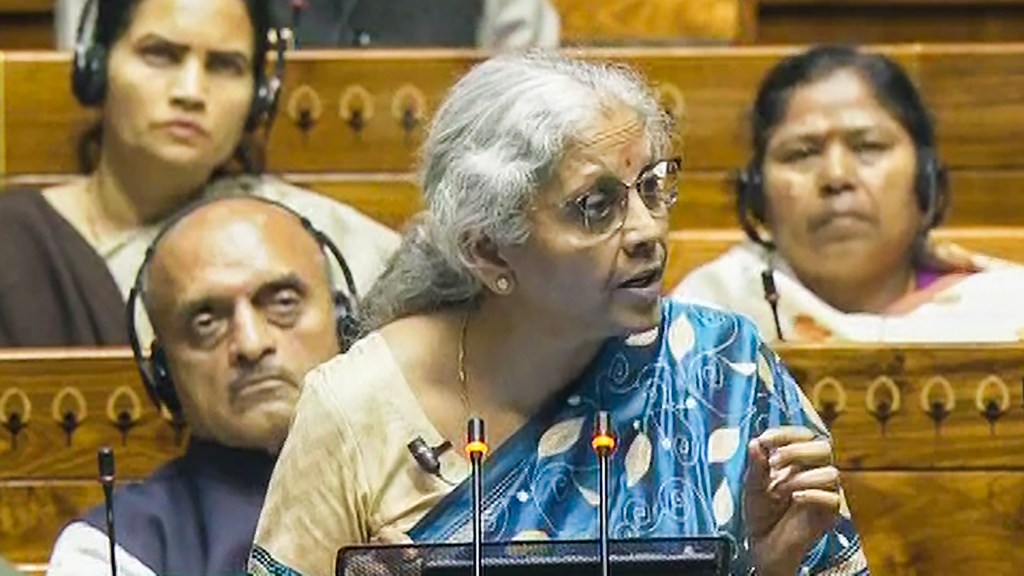The finance minister has generally delivered more than what she promises in her budgets. The government has also avoided making tall promises and then falling short on implementation. This interim budget is in accordance with those standards. The government believes that actions and performance during its term in office would be far more effective in establishing credibility with the voters than rhetoric and tall promises. Its position is that what it has done for different sections of the population—especially for the poor, women, farmers and the youth—will stand it in good stead in the polls, and there is no need for a populist stance in the budget and promise doles and giveaways.
The finance minister, of course, did not forget that elections are due shortly. She very effectively communicated all the schemes and programmes that the government has implemented over the last decade, and which have led to the credibility of the Prime Minister reaching levels far higher than that of any other leader since Independence. These programmes have visibly improved the living standards of many. That will be enough to give them an adequate margin over all others.
If anything in the budget could be called populist by critics, it is the proposal to write off old pending tax claims to the extent of `25,000 for upto 2009-10 and Rs 10,000 for the period upto 2014-15. This step will free the tax officers to concentrate on more productive work instead of chasing small claims, and in many cases, claims that cannot or should not be realised. The possible benefits would be less than the cost incurred.
Women have, in recent years, been major beneficiaries of government programmes. House-building schemes, the supply of water and cooking fuel to villages, toilets in schools, the abolition of triple talaq, the direct transfer of benefits, and the reservation of seats for women have given women greater freedom and a better life. The finance minister mentioned all of these, and women voters, especially rural ones, would associate the change in their lives with the Prime Minister. The change in the environment for doing business was brought home to businessmen and industrialists by the reference to GST, the changes in the tax assessment system, and the reduction in the scope for corruption owing to the revised processes. The substantial infrastructure building in the country has benefitted almost everyone. The overall progress of the country was subtly indicated by the reference to the G20 meeting. The clincher was the mention of the Ram Mandir in Ayodhya and the climate of optimism in the country.
The finance minister left all direct and indirect taxes unchanged. This was not unexpected and, considering that this is an interim budget, was the right thing to do.
She announced that another 20 million houses would be built in the next five years under the existing scheme. The past performance in implementing the housing schemes will lend great credibility to this. A scheme to enable the middle class to build houses has been announced. Owning a house is one of the major aspirations of most Indians and these programmes will thus be welcomed by all. Economically, house-building has great merit as a driver of economic growth. It creates a lot of employment, and because of its linkages, results in creating a demand for a large and varied number of products.
The scheme for providing rooftop solar panels recently announced by the PM and mentioned by the finance minister has great potential for improving the quality of life of the poor. Its implementation and the maintenance of the panels by the beneficiaries would be critical for its long-term success.
The importance being attached to the bio-fuel sector is welcome. The use of all animal, agricultural, and human waste in the country has enormous potential for our energy security and for meeting the carbon neutrality goal. The fallout for the the Swachh Bharat programme will be an ancillary benefit.
Long-term interest-free loans to states for reforming administration will be watched with much interest. People interact with state administrations in most matters related to their daily lives. If they also become more citizen-centric and think of citizens as customers who make their existence possible, the vision of Ram Rajya will be realised.
The financial figures revealed by the finance minister are indicative of the fact that the government has been working with great financial prudence. There were no overruns of the estimates. What has surprised many is the government’s indication that the fiscal deficit for FY25 would be 5.1%. This is despite increasing the capex budget by about 11%. The general expectation was that the figure would be closer to 5.4-5.5%. This, along with the lower borrowing targets, shows the commitment to keep financial management on the right track and not giving way to populist demands, especially with elections due. The budget makes us realise that the government has been successful in implementing not only much larger infrastructure and developmental programmes, but has also been able to find funds for a multitude of programmes that benefit the more vulnerable sections of the population. This was never possible in the past decades.
The finance minister deserves to be congratulated for an excellent job. She has set a high standard for interim budgets, and possibly for all budgets. She was able to say all that was important clearly and concisely and limited her speech to less than an hour. She understands the value of time. More of us need to do so.
RC Bhargava, chairman of Maruti Suzuki India. Views are personal.
